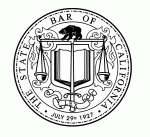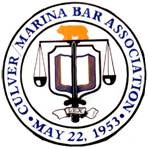In 1983 the California Legislature passed Civil Code section 1719 in order to create an effective remedy for persons who had received bad checks. That statute provides that if certain actions are taken, the recipient of a bad check that is not dishonored because of a good faith dispute may be able to recover the amount of the check, plus service charges and/or statutory damages, from the maker of the bad check. Section 1719 provides that any person who passes a check that is returned for non-sufficient funds (“NSF”) or because the maker has no account or stops payment on a check without proper justification, and who fails to pay the amount of the check plus service charges and mailing costs, in cash, to the payee within thirty (30) days following a written de-mand sent to the maker by certified mail, can be sued for statutory damages by the check’s payee. The statutory damages that must be awarded are the face amount of the check, less any partial payments, plus the following amounts:
(a) for unpaid check amounts owed up to $33.33, $100;
(b) for unpaid check amounts owed between $33.34 and $499.99, three times the unpaid amount of the check; and,
(c) for unpaid check amounts owed that are $500.00 or higher, $1,500.00.
To obtain such damages, the payee of a dishonored check must prove the following:
(a) that the check was dishonored for some reason other than being stopped due to a good faith dispute;
(b) that a written demand substantially in the form set out in section 1719(c) was sent by certified mail to the check’s maker; and
(c) that the maker failed to pay the sums due, in cash, within thirty days after the mailing of the written demand.
If these requirements are proved, the Court is mandatory required to award the damages provided by section 1719. If the maker of a dishonored check contends that the check was stopped because there was a good faith dispute about the obligation being paid, the court is required to determine if such a good faith dispute existed.
A “good faith dispute” will be found to exist if the Court finds that the check’s maker had a reasonable belief that he or she was legally entitled to withhold payment. Examples of facts establishing that good faith disputes exist include situations where the maker of the check proves that the goods or services being sold were not delivered or provided by the payee, that there was an overcharge, or that services or goods were faulty, defective, not as promised, or otherwise inadequate.
Section 1719 also provides that the maker of a check will not be liable for service charges, mailing costs or treble damages if the maker provides the payee with written confirmation from the maker’s financial institution that the check was returned to the payee by the financial institution due to an error on the part of that institution or with written confirmation that the maker’s account had insufficient funds as a result of a delay in the regularly scheduled transfer, or posting, of a direct deposit of a social security or government benefit assistance payment. Lawsuits under section 1719 can be prosecuted in Small Claims Court by individuals as long as the $7,500 jurisdictional limits of that court are not exceeded. (Corporations, LLC’s, partnerships, trusts and other legal entities cannot claim more than $5,000.)
While acting as a Judge Pro Tem in Small Claims Court, I have found that in many cases, claimants are not aware that they can take advantage of this statutory procedure to encourage makers of bad checks to pay up promptly, fully and in cash, or be required to pay statutory damages as well as the check amount. Judges cannot grant relief under section 1719 unless all of its requirements have been met, including asking in your claim or lawsuit for its statutory damages, so if you ever receive a bad check, you should go on line or to the public library and copy the provisions of section 1719 to make sure that you follow it correctly.
Also, there probably now are computer software programs that include legal forms and instructions for making section 1719 claims. This excellent remedy for bad checks is there for everyone, but only if one acts to take advantage of it.




